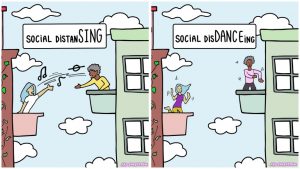 We want to remind everyone that stress reduction is important, now more than ever. The California Youth Crisis Line is here for you if you need to talk, de-stress, or get access to resources and services, call or text us 24/7 at (800) 843-5200 or chat with us online at www.calyouth.org/chat.
We want to remind everyone that stress reduction is important, now more than ever. The California Youth Crisis Line is here for you if you need to talk, de-stress, or get access to resources and services, call or text us 24/7 at (800) 843-5200 or chat with us online at www.calyouth.org/chat.
According to the CDC the people who may respond more strongly to the stress of a crisis include:
- Older People and people with chronic illnesses who are at higher risk for COVID-19
- Children and teens.
- People who are helping with the response to COVID-19, like doctors and other health care providers, or first responders.
- People who have mental health conditions including problems with substance use.
Stress during an infectious disease outbreak can include
- Fear and worry about your own health and the health of your loved ones
- Changes in sleep or eating patterns
- Difficulty sleeping or concentrating
- Worsening of chronic health problems
- Increased use of alcohol, tobacco, or other drugs
Here are a few ways that we can individually reduce stress (a lot of which are done in the comfort of our own homes or outdoors).
Get Enough Sleep
Getting enough sleep is a vital part of every person’s overall health and well-being. It enables the body to repair and be fit and ready for another day in addition to reducing stress. The amount of sleep vary slightly from person to person, most adults need between seven to nine hours of sleep youth need anywhere between seven and 12 hours.
Exercise Regularly (30 minutes a day)
Exercise and other physical activity produce endorphins-chemicals in the brain that act as natural painkillers-and also improve the ability to sleep, which in turn reduces stress. It’s “meditation in motion” where after exercise you’ll often find that you’ve forgotten the day’s irritations and stressors and concentrated only on your body’s movements. It also improves your overall mood by assisting in relaxation and giving you a sense of command over your body and your life.
Build a social support network (does not have to be physical)
A great way to reduce stress (even during this time of social distancing) is to build your social support network. Call or text friends and family reach out to them on social networking apps like Facebook’s Messenger, Whatsapp, Facetime, Skype, Zoom. Remember that a goal of building your social support network is to reduces your stress, not add to it. Watch for situations and people who seem to drain your energy with toxic behaviors (constantly being negative and critical, substance or alcohol abuse, etc.)
Try Relaxation Methods
There are many relaxation techniques that can help you reduce stress. A few recommended by Harvard Medical School include: Breath Focus, Body Scan, Guided Imagery, Mindfulness meditation, Yoga, and more. (We will cover this in a future article)
Seek Help when needed.
Seeking help is one of the best ways to reduce stress. You can always call or text us at (800) 843-5200 and one of our trained crisis counselors can help. They can help connect you to services or resources that can help you manage your stress when it becomes too much to handle, or be there to help find the right coping mechanism that can help you. The California Youth Crisis Line is 24/7 and is available to youth, families, and youth allies/service providers. Call or text us or visit www.calyouth.org/chat.
Bonus: Know the facts about COVID-19
A great way to reduce stress during these challenging times is being fully informed about COVID-19, what it is (and isn’t), what you should do, and how to stay safe. You can visit the United States Center for Disease Control and Prevention’s website about COVID-19 or the World Health Organization’s website. Another helpful resource is staying up to date with your city and county’s response to COVID-19. Find out which county you’re in by visiting: https://www.mapdevelopers.com/what-county-am-i-in.php
